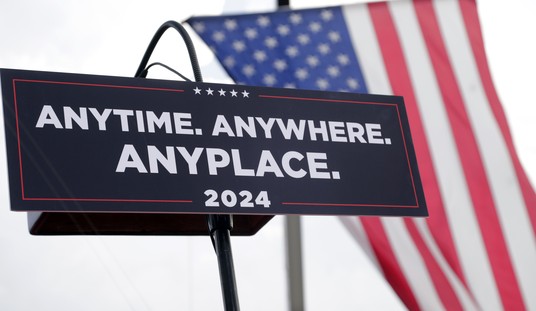Not long ago, the general consensus on America’s post-9/11 wars was that they had largely achieved their goals. Osama bin Laden was dead, we’d captured most if not all of the 9/11 conspiracy leaders, and the infrastructure of al-Qaeda had been gutted. In Iraq, we had removed Saddam Hussein and set up a representative government, and eventually defeated an al-Qaeda uprising in Anbar that threatened to unravel the whole effort.
What happened? Almost as soon as we started withdrawing in Afghanistan and completed the pullout in Iraq, public sentiment shifted, according to Pew. Now the consensus is that neither war achieved its goals:
After more than a decade of war in Iraq and Afghanistan, the public does not think the United States has achieved its goals in either country. About half of Americans (52%) say the U.S. has mostly failed to achieve its goals in Afghanistan while 38% say it has mostly succeeded. Opinions about the U.S. war in Iraq are virtually the same: 52% say the United States has mostly failed in reaching its goals there, while 37% say it has mostly succeeded.
In both cases, evaluations of the wars have turned more negative in recent years. In November 2011, as the U.S. was completing its military withdrawal from Iraq, a majority (56%) thought the U.S. had achieved its goals there.
Similarly, the public’s critical assessment of U.S. achievements in Afghanistan stands in contrast to opinion in June 2011, shortly after Osama bin Laden was killed in neighboring Pakistan. At that time, 58% answered a forward-looking question by saying they thought the U.S. would achieve its goals in that country; the question in the current survey asks whether the U.S. has achieved its goals.
This chart tracks the changing perception in Iraq:
Note the huge boost in optimism in 2009, which came after George Bush and Nouri al-Maliki signed the status-of-forces agreement, and Barack Obama embraced it. At that point, everyone had more reason to invest themselves in the idea of a success in Iraq — Republicans for vindication, and Democrats for Obama’s efforts to conclude them honorably. Rather than keep forces there to guarantee success, though, Obama booted the negotiations with Maliki and ended up completely withdrawing. By 2013, it became clear that AQ had risen again in Anbar as well as across the border in Syria in the vacuum, and by now it’s more apparent than ever that the region is falling into chaos.
For a demonstration of the partisan ebb and flow, here’s chart #2 from Pew:
At the time of our failure to extend our presence in Iraq, there was a broad, non-partisan consensus of success there. Less than three years later, the broad non-partisan consensus remains, but it’s now on failure.
Similarly, a broad consensus existed for success for Afghanistan at the same time, and has dissipated entirely by now. Only a slight majority — 51/41 — think we made the right decision to use force in Afghanistan, even though the Taliban sheltered al-Qaeda and its leadership before and after 9/11. Eight years ago, 69% of Americans backed that decision, more than four years into the war. Republicans, it should be noted, still back the use of force in both theaters by majorities, even though only 38% overall now back the use of force in Iraq.
Again, what happened? What we are seeing in these numbers is the cold calculation of retrospection rather than the principled position of theory. Iraq is now under siege, and Afghanistan is so bad that even the roads we thought would rescue it from the Stone Age are becoming a public danger. We poured American blood and treasure into these theaters for years, only to see Afghanistan make virtually no progress at all and Iraq struggling to remain upright on its own. In ten years, if both countries make significant progress, these evaluations may change again. For now, though, they look like rational assessments of the overall results — and perhaps an object lesson on the limits of intervention and nation-building.










Join the conversation as a VIP Member